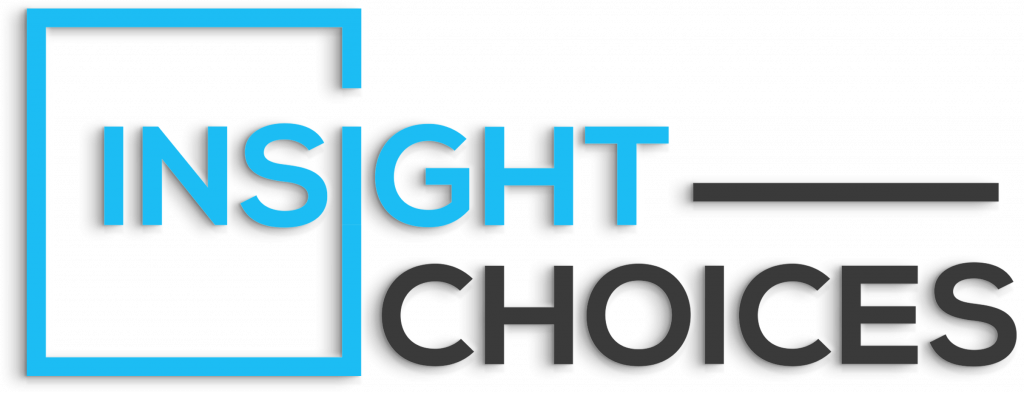Attention Deficit Disorder (ADD) is a neurological condition marked by persistent inattention and distractibility without the hyperactive behavior typically associated with Attention Deficit Hyperactivity Disorder (ADHD). ADD often persists into adulthood, yet it frequently goes undiagnosed, especially in women. Individuals with ADD usually face significant challenges in daily activities, such as organizing, maintaining focus, and managing time effectively.
Beyond personal difficulties, ADD can severely affect relationships. Struggles with staying present during conversations, forgetfulness, and impulsivity can impair communication and emotional connections. Partners, family members, and colleagues may experience frustration or a sense of disconnection due to the inconsistent attention and behavior patterns associated with ADD.
Understanding ADD’s effects on daily functioning and interpersonal relationships is essential for promoting empathy, providing support, and improving overall relational dynamics. This understanding is key to helping individuals with ADD navigate their lives more effectively and maintain healthier relationships.
What is Attention Deficit Disorder (ADD)?
Attention Deficit Disorder (ADD) is a neurodevelopmental condition characterized by ongoing difficulties with sustaining attention, focus, and concentration without the hyperactivity that is typically seen in Attention Deficit Hyperactivity Disorder (ADHD). While attention deficit disorder symptoms, such as distractibility and impulsivity, differ in that it does not involve the heightened activity levels or restlessness commonly associated with ADHD.
It is important to emphasize that ADD is not a result of laziness, poor willpower, or a lack of intelligence. Instead, it stems from a neurological difference in how the brain processes information and responds to stimuli. Individuals with ADD may struggle to filter out distractions or focus on tasks, even knowing their importance. This difference in cognitive functioning affects attention regulation, executive functioning, and maintaining focus over long periods.
ADD is a condition that can persist into adulthood, often going undiagnosed or misdiagnosed, particularly in women, who may present different symptoms than the traditional stereotype of hyperactive boys. Mental health professionals and ADD specialists emphasize that the condition reflects unique cognitive patterns rather than a deficiency in effort, capability, or character. With the right support and treatment, individuals with ADD can manage their attention deficit disorder symptoms effectively and lead successful, fulfilling lives.
ADD’s Impact on Daily Life
It is essential to understand how attention deficit disorder in adults influences an individual’s interaction with their environment. Individuals with ADD often experience difficulties with executive functions, such as organizing, prioritizing, and maintaining focus on tasks. As a result, clutter may accumulate, leading to heightened anxiety and a sense of being overwhelmed.
Navigating the Diagnosis and Treatment of ADD
- Early Identification: Early recognition of ADD symptoms can facilitate the development of effective management strategies. Symptoms often include inattention, distractibility, and impulsivity, though these can manifest in various forms depending on the individual.
- Consulting a Specialist: A trained ADD specialist, such as a psychiatrist or psychologist, can thoroughly evaluate and provide an accurate diagnosis. These professionals are skilled at differentiating ADD from other potential conditions that may present with similar symptoms.
- Benefits of Counseling: Counseling for ADD allows individuals to gain a deeper understanding of their condition and create tailored strategies to address challenges encountered in daily life, such as managing clutter and improving organizational skills.
ADD and Relationships
The symptoms of Attention Deficit Disorder (ADD), including distractibility, disorganization, and impulsivity, can create significant challenges in various aspects of adult life. However, these symptoms may be particularly damaging to close relationships, especially when ADD remains undiagnosed or untreated. Below is an overview of the potential impact on both partners in such relationships:
For Individuals with ADD:
- You may feel continuously criticized, micromanaged, and frustrated as nothing seems to satisfy your partner.
- There may be a sense of disrespect as an adult, leading to avoidance behaviors or saying whatever is necessary to avoid conflict.
- You may desire your partner to relax and stop controlling aspects of your life, wondering what happened to the connection you once shared.
For Partners of Individuals with ADD:
- You may feel lonely, neglected, and unappreciated, especially when you assume most of the relationship’s responsibilities.
- The lack of follow-through from your partner can lead to feelings of frustration and the need to issue constant reminders or manage tasks on your own.
- It can seem your partner doesn’t care or isn’t invested in the relationship.
The resulting dynamic often leads to a cycle of resentment and defensiveness, where the non-ADD partner becomes increasingly frustrated, and the individual with ADD feels misunderstood and withdraws. This cycle can lead to dissatisfaction for both individuals.
However, it is possible to break this cycle and improve the relationship. By understanding ADD’s role and adopting more constructive communication strategies, both partners can create a healthier and more supportive relationship. Mutual awareness and effort can foster a stronger, more empathetic connection.
Coping Strategies for Managing ADD in Daily Life
Implementing practical strategies can significantly alleviate the anxiety often associated with clutter and improve daily functioning for individuals with ADD. Below are some effective techniques for managing clutter and maintaining organization:
- Break Tasks into Smaller Steps: Divide cleaning and organizing tasks into smaller, more manageable segments to avoid feeling overwhelmed.
- Time Management: Set a timer to limit the duration of cleaning sessions. This will help you stay focused and prevent burnout.
- Use Organizational Tools: Utilize items such as color-coded bins, labels, and strategically placed wastebaskets to help maintain order and reduce clutter.
- Establish a Routine: Create a regular cleaning routine to foster a consistent approach to maintaining a tidy environment.
- Incorporate Positive Reinforcement: Reward yourself for completing decluttering tasks to build motivation and develop a positive association with the organization.
- Seek External Support: For assistance in managing tasks effectively, contact friends, family, or a professional organizer.
When integrated into daily routines, these strategies can help individuals with ADD manage their environment more effectively and reduce stress.
Support Systems and Treatment Options
Finding professional help is critical in managing Attention Deficit Disorder (ADD) or Attention Deficit Hyperactivity Disorder (ADHD), as it can significantly improve daily functioning and quality of life. Treatment options are available, including therapy, coaching, and medication, each addressing different aspects of the condition.
- Therapy: Psychological therapy, such as Cognitive Behavioral Therapy (CBT) or ADHD-specific therapeutic approaches, can help individuals develop coping strategies for managing attention deficit disorder symptoms. Therapy provides a safe space to address emotional challenges, improve self-esteem, and build skills for managing attention, impulse control, and organization.
- Coaching: ADHD coaching focuses on practical strategies and skills development to help individuals with ADD stay organized, manage time effectively, and achieve their goals. Coaches often work with clients to create structured routines, set achievable goals, and maintain motivation.
- Medication: Medication, such as stimulants or non-stimulants, can be an essential part of managing ADHD symptoms. Medications help regulate brain chemistry, improving focus, impulse control, and attention span. Working with a healthcare professional to find the proper medication and dosage is vital for success.
Importance of Continuous Support
ADD and ADHD are lifelong conditions that require ongoing support to manage effectively. Continuous support helps individuals stay on track with treatment, maintain progress, and adapt to any changes in symptoms.
- Therapeutic Relationship: Ongoing therapy sessions provide regular check-ins and adjustments to treatment plans, ensuring that individuals are continually supported in managing symptoms.
- Accountability and Encouragement: Consistent support, whether through therapy, coaching, or support groups, fosters accountability and motivates one to stay engaged in the treatment process.
- Adaptation to Life Changes: As life circumstances evolve, the strategies for managing ADHD may need adjustment. Continuous support helps individuals stay flexible and responsive to these changes, ensuring long-term success in controlling symptoms.
Finding and maintaining professional support is crucial for individuals with ADD or ADHD, as it not only addresses immediate needs but also fosters long-term coping skills and emotional well-being.
Conclusion
Attention Deficit Disorder (ADD) can significantly impact various aspects of an individual’s life, including daily functioning and relationships. Challenges with attention, organization, and time management can lead to feelings of frustration, anxiety, and overwhelm. In relationships, the symptoms of ADD can create misunderstandings, leading to emotional disconnection, loneliness, and resentment between partners, family members, and colleagues.
However, with the proper support and treatment, individuals with ADD can effectively manage their symptoms and improve their quality of life. Therapy, coaching, medication, and ongoing support can help build strategies for managing daily tasks, improving relationships, and fostering greater emotional well-being.
If you or someone you know is struggling with ADD, don’t hesitate to seek professional help. At Insight Choices, we provide personalized counseling, coaching, and support tailored to your unique needs. Our holistic approach to managing ADD can help you regain control, improve relationships, and live a more fulfilling life.
Take the first step toward a better future—contact Insight Choices today to explore how we can support you on your journey to managing ADD effectively.
FAQs:
How does ADD affect someone’s daily life?
ADD can make tasks like organizing, prioritizing, and staying focused on activities more challenging. Individuals may experience difficulty managing time, maintaining attention, and completing tasks, often leading to feelings of frustration and overwhelm.
Can ADD affect relationships?
Yes, ADD can impact relationships by causing communication breakdowns, forgetfulness, and impulsivity. Partners or family members may feel neglected or frustrated due to the inconsistent attention or behaviors associated with ADD, leading to emotional disconnection.
What are the best ways to manage ADD?
Effective ADD management includes strategies like breaking tasks into smaller steps, using time management tools, establishing routines, and seeking professional support through therapy or coaching. In some cases, medication may also be recommended to help regulate attention and focus.
Is ADD different from ADHD?
Yes, ADD is a subtype of ADHD. The primary difference is that ADD is characterized by inattention without the hyperactivity component, while ADHD involves both inattention and hyperactivity/impulsivity.
How can I improve my relationships if I have ADD?
Improving relationships with ADD involves open communication, setting clear expectations, and using organizational tools to stay on track. Seeking couples counseling or therapy for ADD can also help both partners understand the condition and develop healthier ways to interact.

Dr. Chang is a highly respected psychiatrist with extensive experience serving patients in the greater Los Angeles area. With a distinguished background in psychiatry, he has dedicated his career to advancing mental health care through both clinical practice and academic contributions.

